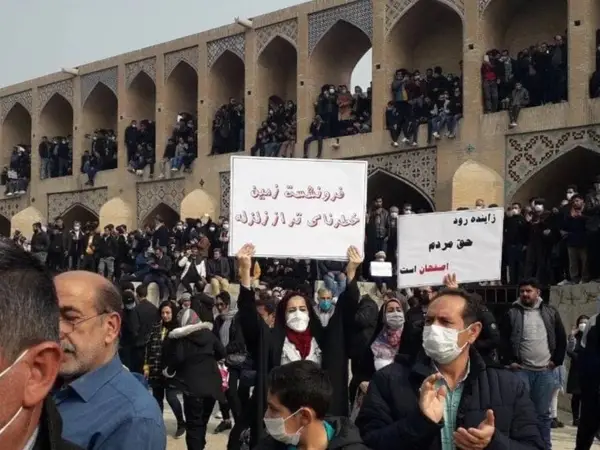Gross violations of human rights and mounting repression show no signs of abating in Iran, Human Rights Watch said in its 2022 report, blaming impunity.
While Iranian security and intelligence organs continued intimidating, arresting and harassing dissidents, judicial authorities also continued their crackdown and the parliament debated and adopted more laws that further violate human rights, the report said.
The hardliner Iranian parliament elected in 2020 in a low-turnout election, after widespread bans on many other candidates, became emboldened as Ebrahim Raisi won the presidency in June 2021 and hardliners established unchecked power in the country.
HRW said that “Over the past three years, security forces have responded to widespread protests stemming largely from economic rights issues with excessive and unlawful force, including lethal force, and arrested thousands of protestors while using prosecution and imprisonment as the main tool to silence the voices of prominent dissidents and human rights defenders.”
The bloodiest instance of state violence was in November 2019, when nationwide protests broke out as a response to the government raising gasoline prices. Security forces immediately resorted to extreme violence, using military weapons against unarmed protesters killing hundreds. The fate of many among 8,000 arrested remains unknown.
“Iranian authorities repressing popular demands for civil and political as well as economic, social, and cultural rights is causing an entire nation irreplaceable harm,” said Michael Page, deputy Middle East director for HRW.
The report says that deteriorating economic conditions lead to more protests. Government mismanagement, US sanctions and the Covid pandemic have led to more hardships.
The government has mismanaged and politicized the response to the pandemic. A vivid example that HRW highlights is the arrest of three prominent human rights defenders, Mehdi Mahmoudian, Mostafa Nili, and Arash Keykhosravi, who were planning to file a complaint against the government’s mismanagement.
Iran’s Supreme Leader Ali Khamenei banned the purchase of American and British Covid vaccine in January 2021 that set Iran’s vaccination program back for months, leading to tens of thousands of more deaths when a severe wave of infections hit Iran from June to August.
Human Rights Watch notes lack of transparency in many critical areas, including the investigation in the shooting down of a Ukrainian airliner in January 2020 that killed all 176 passengers on board.
The report also noted proposals and legislation in parliament restricting women’s accessto contraception and abortion, putting public health at risk. The hardliner parliament is also mulling over a plan to further restrict internet access, especially access to international social media platforms that allow Iranian to receive and share information.
“Iran continues to be one of the world’s leading implementers of the death penalty. According to rights groups, in 2021 Iran had executed at least 254 people as of November 8, including at least seven people on alleged terrorism-related charges,” HRW said.
